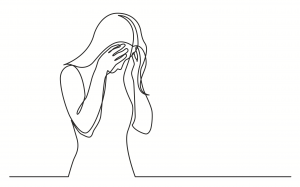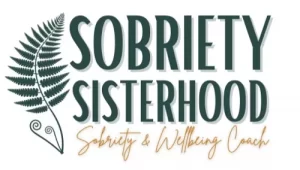Sobriety Sisterhood & Mindfulness
Let’s begin with what these things are. What is mindfulness – or rather, what it is not?! The general impression that mindfulness involves a lot of sitting around meditating is false. A good definition of mindfulness is:

“a mental state achieved by focusing one’s awareness on the present moment, while calmly acknowledging and accepting one’s feelings, thoughts, and bodily sensations.”
That’s a bit of a mouthful, but in essence, mindfulness is about being aware of yourself, your thoughts and feelings and the world around you. You don’t need to be meditating to achieve that.
Sobriety actually means, first, not being intoxicated.
 “It is about the person’s being alert to and proceeding in life. The word “sober” conveys an overall seriousness and purpose a person has.”
“It is about the person’s being alert to and proceeding in life. The word “sober” conveys an overall seriousness and purpose a person has.”
Whatever your reason for sobriety, it’s going to be a journey of self-discovery and awareness. The awareness of what life can be like if we are not constantly poisoning our systems with alcohol, and the discovery of who you can be when not impacted by this behaviour.
Both mindfulness and sobriety require practice, self-awareness and getting more accomplished over time. They are both journeys, personal and complex, just like us. No-one’s journey is going to be the same as anyone else’s, but we can all share the techniques and approaches that help. The attitudes of mindfulness can help with our description of sobriety (becoming alert, proceeding in life, with seriousness and purpose):
- Non-Judging
- Beginners Mind
- Acceptance
- Letting Go
- Trust
- Patience
- Non-Striving (Non-doing)
- Gratitude
- Generosity
In the next few months, I will explore the attitudes of mindfulness and how they relate to our journey of sobriety. Let’s begin with non-judgement, although they are not in any specific order and of course, can all be done at once. Mindfulness is an excellent way to begin a clean and sober lifestyle.
Non-judgement
One of things that you will probably have to learn is to be non-judgemental, of yourself and others’ reactions to your choice. I have learnt over the years that people find sobriety a very strange concept, almost an unnatural state of being. There is plenty of judgement from others on the choice to be sober, which can shake your own convictions and make you doubt your own reasons. A key attitude of mindfulness is non-judgement to remove the criticisms and faulty thinking that we all experience, we are all very judgemental.
 In itself, being judgemental is not a bad thing – it’s kept us alive as a species to be able to label things as good or bad, safe or dangerous. Learning those patterns has enabled us to survive and evolve. But in the modern world, its less about survival and more about what we think we should or should not be doing. Or likes and dislikes, as simple as “that dress looks nice on me” or less pleasant “why am I so stupid?” Judgements like this are made so quickly we don’t pay attention to them, but they leave feelings behind. Managing our awareness with mindfulness can save us from a lot of harmful negative emotion, particularly directed at ourselves.
In itself, being judgemental is not a bad thing – it’s kept us alive as a species to be able to label things as good or bad, safe or dangerous. Learning those patterns has enabled us to survive and evolve. But in the modern world, its less about survival and more about what we think we should or should not be doing. Or likes and dislikes, as simple as “that dress looks nice on me” or less pleasant “why am I so stupid?” Judgements like this are made so quickly we don’t pay attention to them, but they leave feelings behind. Managing our awareness with mindfulness can save us from a lot of harmful negative emotion, particularly directed at ourselves.
Mindfulness is about looking at things objectively and from a non-judgemental perspective. This takes time and practice, just like so many other things we do. We learn to see the judgements we have, acknowledge them so that they don’t hold power over us and we learn to act the way we want to, not letting our negative thoughts about ourselves take charge. Non-judgmental means, looking at the negative criticism and letting it go, acknowledging it, and then moving on as if it were just a useless bit of information. It eventually becomes as easy as noticing that, “Oh I’m telling myself I’m stupid again,” and then moving on from that, not fighting it, but also not giving it any more attention. Apply that same thinking to a craving or compulsion and you can see how sobriety can be supported by this mindfulness attitude. When an uncomfortable feeling like a craving, withdrawal symptoms or anxiety arises, mindfulness teaches us to recognise these discomforts, and observe them non-judgementally, instead of automatically engaging in previous behaviours.
This improved level of attention in our journey helps us to gain a better understanding of our triggers and cravings, including our automatic behaviours, like having a drink when you get in from work – not because you want one, just because it’s a habit. Changing our perception and focus has an impact on our brains, making this a more permanent, healthy pattern of behaviour. 

Collaboration with Sobriety Sisterhood,
exploring the support mindfulness and awareness
can provide for your sober journey.